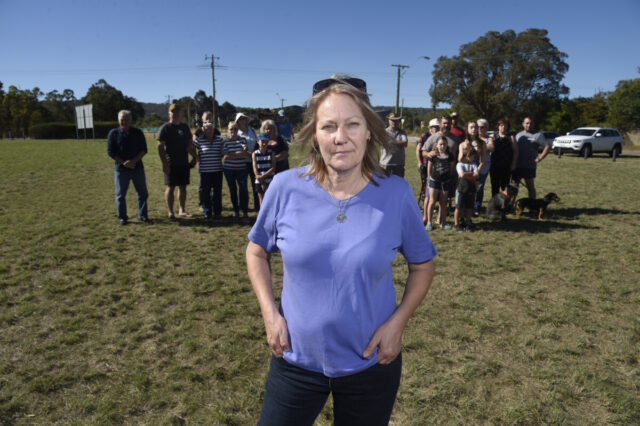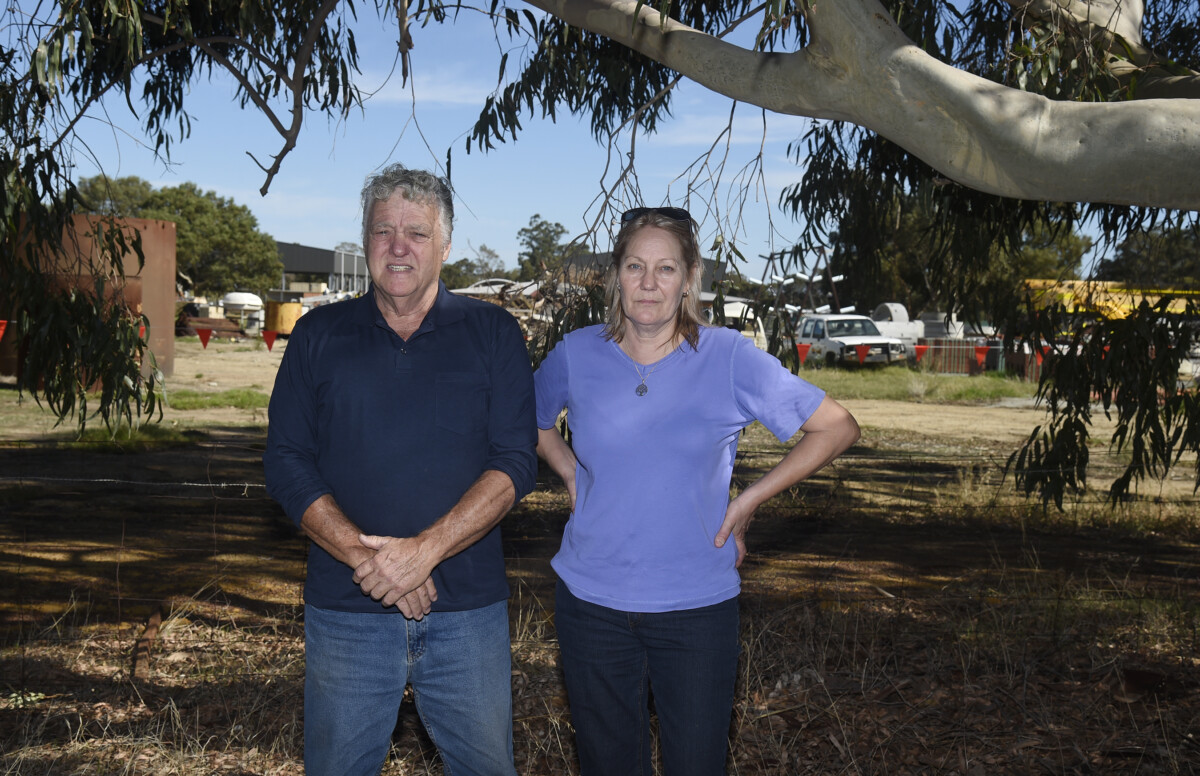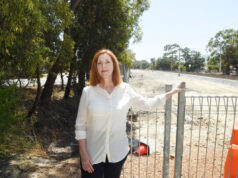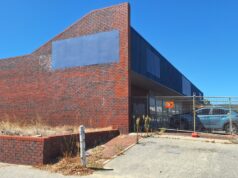
The Cardup Business Park is a small wedge of industrial land sandwiched between the highway and growing residential estates.
Time and time again conflicts arise between the local heavy industries there that create vital public infrastructure for our city and the neighbouring residents who have to live with the fallout from these activities.
The issue between these competing rights came to a head once more at last month’s council meeting when Wormall Group sought approval for uncapped production limits and extended production hours at its Smartstream plastics manufacturing plant on Cardup Siding Rd, after a ‘successful’ 12-month trial.
“As one of the largest employers in the shire, my family business Wormall Group has operated from our current Cardup location since 2016,” Managing Director Shane Wormall said.
“From our Cardup base, we provide civil construction services and deliver approximately half of Perth’s new residential lots, in addition to supplying important concrete and plastic components used in those subdivisions.
“This evening’s item concerns our plastic operations, where we manufacture a range of sewer pits, maintenance shafts and other underground items. As many of you would be aware, our innovative plastic products were invented by me personally a number of years ago, and are direct alternatives or replacements for in-ground concrete products. They have much lower carbon inputs, are lighter and therefore safer to work with on active construction sites or in replacement scenarios, and have significantly longer lifespans than their traditional concrete alternatives.
“It’s inevitable that a business like ours will generate some level of noise, odour and other impacts such as truck movements – and so we were supportive of the shire’s position a year ago to allow us to operate our plastics facility without volume or time limits for a one-year period, subject to more intensive noise and odour monitoring.
“We have always been respectful of our neighbours, and have strived to minimise any noise, odour or other amenity impacts as much as possible.”
Mr Wormall said the company had never received any direct complaints from its neighbours, and said they were open to having a direct line of communication in future.
Local residents who objected to the original change of conditions back in August 2023 said the ‘awful’ smell of melted plastic had been badly affecting them for years, and they’d been making complaints since day dot.
“We get adverse health issues from this such as headaches, and feeling physically sick. There are times, particularly in summer when we have our house windows open, that the smell filters into our home too. During the summer there are frequently times when we can’t sit outside because of the toxic odour,” Paul Byl said.
Karina Baker, who has over eight years’ experience working in plastic manufacturing, said her concern was exposure to the microplastics emitted from the plant.
“I still cannot find any sampling from the industrial whirlybirds … The fact that the plant is up-wind – and we are all aware of the volatile easterly winds – it would have to be assumed by logic that we would be in the firing line of these microplastics,” she said.

However, since the trial started 12 months ago, only five complaints have been lodged with the shire.
“Every time we receive a complaint, our environmental health officers will attend,” Director Development Services Andrew Trosic said.
“Although it sounds funny to say, we do have staff who are calibrated sniffers who actually have to meet a certain ability to be able to detect if odours are present. When they attended no odours were detected upon their visitation.”
An air quality assessment which assessed airborne pollutants at the stack, and ground level concentrations found they didn’t “exceed regulatory guidelines” and posed “a negligible risk for causing adverse impacts”.
Likewise, a peer-reviewed environmental noise assessment conducted by the shire in May this year found that “noise from the actual operations was barely audible”.
Paul Byl said conditions had improved for a number of months, but that over the past couple of weeks he had been “smelling strong melted plastic odours again numerous times a week, particularly when there is low cloud cover, westerly winds, and south westerly winds”.
He was particularly concerned that affected residents had never had any feedback from the shire after complaints were made, had never seen any impact assessment reports firsthand, nor had they been notified that council was due to decide on whether to lift restrictions at the plant.
“As a duty of care to ratepayers, we should have been notified,” he said.
Officers explained that because the matter was not a development application it wasn’t “subject to community consultation”.
But Cr Nathan Bishop was critical of this decision.
“As I understand it, we’re being asked to make a decision to allow the unrestricted approval to continue, or to refuse it, without consulting the community further – the individuals who have spent the past year experiencing what it is that was approved back in August 2023,” he said.
“I think it’s quite important that we provide a pathway to be able to consult our residents, and understand what, beyond the objective evidence, is subjectively being experienced by them, so we can properly assess amenity impact.”
Cr Tricia Duggin expressed her belief that more complaints would have been forthcoming had the process not been so ‘onerous’ for residents.
“The current system is failing them, and I’ve heard that very loudly,” she said.
She proposed an alternate motion that allowed Wormall to continue with its uncapped production volumes and times, on the condition that a 24/7 hotline be made available to residents on the company’s website. The company will also still be subjected to annual compliance testing.
“It is somewhat difficult that we are placed in this position. The proponent is purely working within their rights – they are on industrial land,” she said.
“The reason we are involved in this is because we have a block of industrial land that’s smack bang in the middle of our urban and rural areas.
“So, with that in mind, the motion I’ve put forward is to provide some balance where there can be some open communication and some understanding between those two very different views.
“And the residents’ concerns can be dealt with in a more timely manner.”
The motion was passed 5:1.













